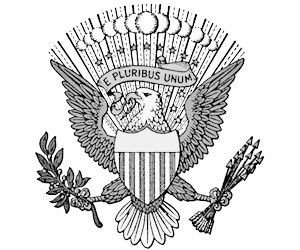|
|
|
|
|
Facts about
Space Race Timeline 1957: October 4, 1957: USSR launch Sputnik, the world's first artificial satellite that orbited Earth every 96 minutes 1957: November 4, 1957: USSR launch Sputnik 2 into space with Laika the dog aboard 1957: December 6, 1957: USA Vanguard Failure. America's first satellite fails in a launch pad explosion 1958: January 31, 1958: USA Explorer Satellite success - America's first satellite launched into space 1958: October 1, 1958: National Aeronautics and Space Administration (NASA) was established 1958: October 11, 1958: The first spacecraft launched by NASA was Pioneer 1 at Cape Canaveral, Florida. 1959: USA initiates a new space program, Project Mercury (1959-1963) to orbit a manned spacecraft around Earth. The Mercury Seven were John Glenn Jr., Gus Grissom, Scott Carpenter, Leroy Gordon Cooper, Walter Schirra, Alan Shepard and Donald "Deke" Slayton. 1959: October 4, 1959: USSR sent the first spacecraft, Luna 3, around the moon 1959: USA abandoned Project A119 aimed at detonating a nuclear weapon on the Moon that would be visible to the naked eye 1960: August 18, 1960: USA Corona Spy Satellite - successful recovery of photographs from space 1961: April 1, 1961: USSR sent First Man into Space in Vostok I spacecraft (Soviet Cosmonaut, Yuri Gagarin) 1961: May 5, 1961: Alan Shepherd became the first American, to travel into space on Freedom 7 1961: July 21, 1961: Gus Grissom was the second American to travel into space the spacecraft Liberty Bell 7. 1961: February 20, 1962: John Glenn flew in Friendship 7 1961: May 24, 1962: Scott Carpenter flew in Aurora 7. 1961: May 25, 1961: US President Kennedy announces goal to reach the Moon 1962: October 3, 1962: Walter Schirra flew in the Sigma 7. 1962: February 20, 1962: USA launches Friendship 7 and John Glenn becomes the first US astronaut to circle the Earth1962: April 1962: USSR launches Zenit Spy Satellite, takes photographs above the USA 1962: July 10 1962: The first of the Telstar privately built communications satellites was launched transmitting the first telephone and television signals carried via satellite1963: May 15-16, 1963: Gordon Cooper piloted the longest and final Mercury spaceflight on the Faith 7 1963: 16 June 1963: USSR launch Vostok 6 sending Valentina Tereshkova as the first woman in space1965: March 1965: USSR First Spacewalk by Aleksei Leonov. 1965: June 3-7, 1965: Astronaut Edward H. White II piloted the second operational Gemini mission and performed the first spacewalk by an American.1966: The US robot spaceship, Surveyor 1, made a soft landing on the Moon 1966: March 16, 1966: The Gemini project saw Neil A. Armstrong and David Scott perform the first orbital docking, successfully coupling two spacecraft. 1967: January 27, 1967: Gus Grissom, Ed White, and Roger Chaffee were killed taking part in a test run for the launch of the first NASA Apollo mission. As a result of this disaster the Apollo program was delayed until the spacecraft could be redesigned. 1967: The Outer Space Treaty was signed in January 1967 forming the basis of international space law and banned placing weapons of mass destruction in outer space. 1968: December 21, 1968: USA launched the Apollo 8 Manned Moon Orbit of the Gemini program 1969: February 1969: USSR N-1 Failed Moon Rocket Test 1969: July 16, 1969: USA places First Man on the Moon. Neil Armstrong and Buzz Aldrin in Apollo 11 lunar module land on the Moon with Michael Collins as the third crew member. 1969: 14-24 November 1969: Charles Conrad, Richard Gordon, and Alan Bean in Apollo 12 were the second mission to land on the Moon 1970: April 11-17,1970: Apollo 13 Astronauts James A. Lovell, John L. "Jack" Swigert and Fred W. Haise survived one of the near disasters of the Apollo program 1970: April 23, 1971: USSR establishes the first Space Station, Salyut 1 1971: January 31- February 9, 1971: Apollo 14 with astronauts Alan Shepard, Edgar Mitchell and Stuart Roosa land on the moon 1971: 26 July 26 - August 7 1971: Apollo 15 with astronauts David R. Scott, Alfred M. Worden and James B. Irwin land on the moon 1971: November 14, 1971: USA sends the first satellite to orbit another planet 1972: April 16-27, 1972: Apollo 16 with astronauts John Young, Thomas Mattingly II, and Charles Duke make the fifth US landing on the moon 1972: December 7-19 1972: Apollo 17 with astronauts Eugene Cernan, Ronald Evans, and Harrison Schmitt make a moon landing in the final mission of NASA's Apollo program. 1973: Russian space probe Mars 2 explored Mars, the fourth planet of the solar system. 1973: May 14, 1973: The US launched their own space station called Skylab, a small orbital space platform that was launched by the modified Saturn V rocket. 1975: Relationships between the USSR and the USA thawed due to the policy of Detente and the 1975 Apollo–Soyuz Test Project (ASTP) initiated the first joint U.S.–Soviet space flight in which the two sides cooperated in scientific research of space. 1975: July 15-24, 1975: The Apollo-Soyuz Test Project entailed the docking of an American Apollo Command Module (CSM) with a Soviet Soyuz spacecraft. The Apollo crew consisted of Tom Stafford, Vance Brand, and Deke Slayton. The Soyuz crew were Alexey Leonov and Valeri Kubasov. 1975: The USA / USSR First joint multi-national manned missions in the Apollo-Soyuz Test Project ended the Cold War Space Race. |
| US American History |
| 1945-1993: Cold War Era |
|
|
|
|
|
First Published2016-04-19 | |||
|
Updated 2018-01-01 |
Publisher
Siteseen Limited
| ||
|
|

